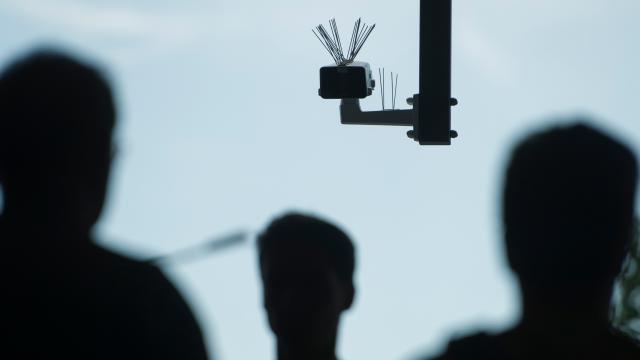In the same week that San Francisco voted to become the first city in the United States to ban government use of face recognition surveillance, two New York State legislators introduced a bill to ban the use of facial recognition surveillance by residential landlords.
New York State Senator Brad Hoylman and Assembly Woman Latrice Walker introduced legislation (S5687) banning the technology in the wake of a battle in Brooklyn over a landlord installing face recognition surveillance in a rent-stabilised complex in a working class, majority black neighbourhood.
“We don’t want to be tracked,” Icemae Downes, a tenant in the complex, told Gothamist in March. “We are not animals. This is like tagging us through our faces because they can’t implant us with a chip.”
San Francisco’s ban was due to privacy, bias and accountability concerns. The proposal in New York State stems from many of the same concerns.
“As the use of facial recognition technology becomes increasingly common, concerns have been raised by advocates for privacy and civil liberties relating to the effectiveness and ethical implications of such technology,” the bill reads. “Significant evidence exists to suggest that facial recognition technology is less accurate when analysing faces of colour than when analysing white faces.”
The lawmakers cite a 2018 MIT study finding that error rates for commercial face recognition products rise dramatically when used to target people of colour when compared to white people.
In San Francisco, the ban on face recognition surveillance was in some ways forward-looking. No city agency uses the technology in that city but, given its rapid proliferation around the world and within the United States, it was viewed not as a matter of if but when it would arrive.
In New York City, the situation is dramatically different. The New York Police Department uses face recognition surveillance but, due to resistance from police, little is publicly known about how widespread the systems are or how exactly they are used. Transparency and accountability don’t get much play in the Big Apple.
The use of face recognition surveillance, nascent and profitable technology that faces a huge range of ethical and practical questions, is at the heart of China’s tech-fuelled authoritarianism. In the United States, it’s used everywhere from airports to Taylor Swift concerts.
Last year, Microsoft president Brad Smith called for federal regulation of face recognition surveillance technology on privacy and human rights grounds.
State Senator Hoylman’s bill wouldn’t impact New York’s government use of facial recognition surveillance but he did say this week that a San Francisco-style law should be examined in New York as well.
Hoylman says landlords could use the surveillance systems to target people living in rent-controlled housing.
“We already have an affordable housing crisis in New York State,” the legislation reads. “We should not be further restricting access to housing for tenants who are concerned about the security of their personal data. Given the substantive issues raised about the ethics and security of facial recognition technology, New York should prohibit its use on residential premises.”
